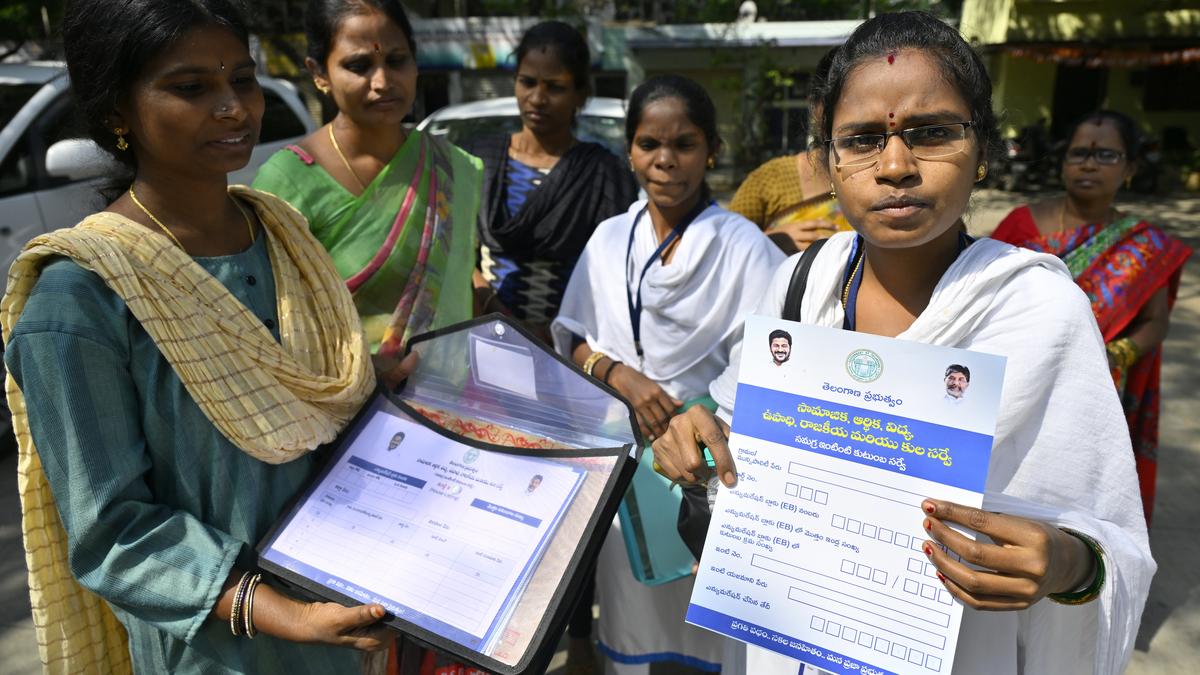Telangana Caste Survey
The recent socio-economic survey in Telangana has revealed vital information about the state’s demographic structure. Conducted across 50 days, the survey reached over 35 million individuals. It marks the population distribution among various caste categories, with Backward Classes (BC) making up the majority. This data aims to enhance welfare schemes and improve job opportunities for underrepresented groups.
Survey Overview
- The Telangana government conducted a comprehensive Socio Economic, Educational, Employment, Political, and Caste survey.
- It covered 3,54,77,554 individuals and 96.9% of households.
- The process involved 94,863 enumerators and 9,628 supervisors across 94,261 enumeration blocks.
- Data entry was performed by 76,000 operators within 36 days.
- This initiative stemmed from a resolution passed in the Assembly in February 2024.
Population Breakdown
- According to the survey, Backward Classes constitute 56.33% of the population.
- Scheduled Castes (SC) account for 17.43% while Scheduled Tribes (ST) make up 10.45%. Other Castes (OC) account for 15.79%.
- In absolute numbers, the BC population is approximately 19.99 million, including 3.58 million BC Muslims.
- The SC population stands at 6.18 million and the ST population at 3.70 million.
Muslim Demographics
The total Muslim population in Telangana is around 4.46 million, which is approximately 12.56% of the state’s population. Among these, BC Muslims represent 10.08% while OC Muslims constitute 2.48%. This demographic detail is crucial for developing targeted welfare policies.
Implications for Governance
The findings of the survey are expected to refine existing welfare schemes and enhance job opportunities for weaker sections. The government views this as a step towards data-driven governance. It aims to fulfil promises made during the 2023 election campaign by the Congress party, led by Chief Minister A Revanth Reddy.
Challenges Faced
The survey encountered several operational challenges. Approximately 103,000 houses were locked during enumeration. About 168,000 families were initially reluctant to participate. Furthermore, 84,137 houses were misclassified, complicating data collection. Despite these hurdles, the participation rate was notable.
Future Prospects
The survey report is anticipated to redefine policy-making in Telangana, focusing on the upliftment of backward classes and other marginalised groups. The government’s commitment to social justice is reinforced through this initiative.
Month: Current Affairs - February, 2025
Category: States Current Affairs







